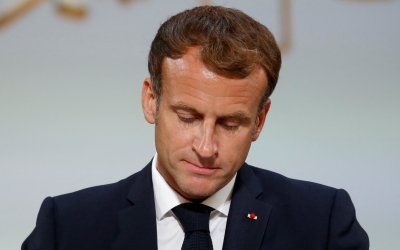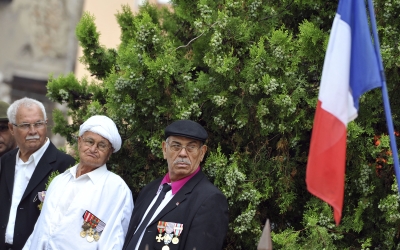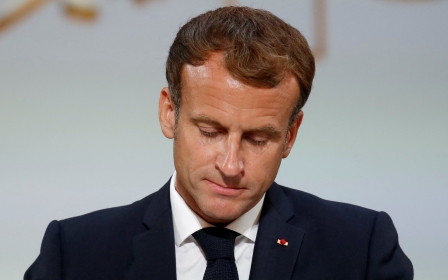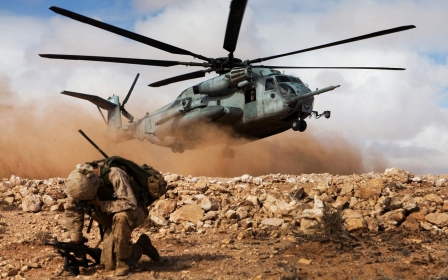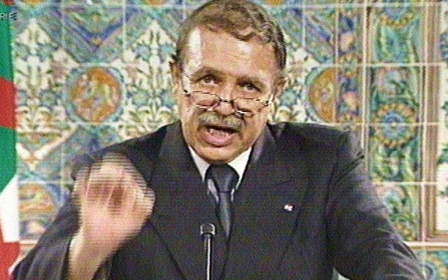Algeria: Fury at France grows unabated over visas, Macron row
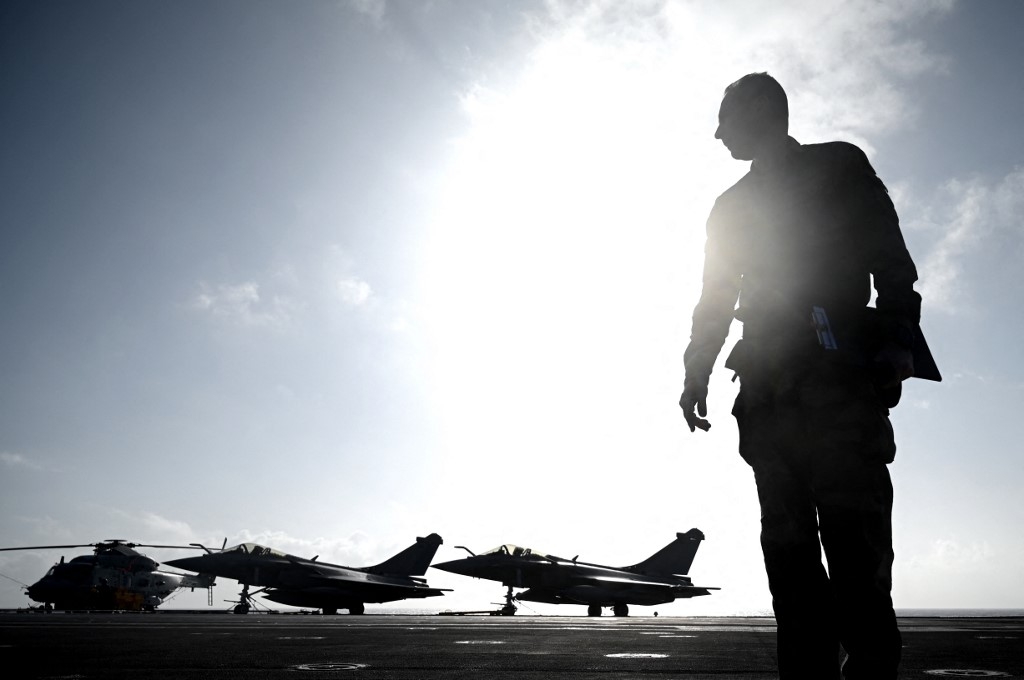
“So, we owe our existence solely to colonisation? Algeria was a country way before France!” On Didouche-Mourad street in central Algiers, conversations are heated in front of a newspaper kiosk displaying the headlines of national newspapers.
Most of the front pages are devoted to photos of French and Algerian presidents Emmanuel Macron and Abdelmadjid Tebboune, covering the latest diplomatic crisis between the two countries that erupted over the weekend.
“What happens next? Are they going to cut diplomatic ties, like Morocco?” one pensioner told Middle East Eye, not without irony, four daily papers in his arms, in reference to the breakdown in diplomatic relations between Morocco and its neighbour in August.
Over the past week, tensions that had been rising between Paris and Algiers finally reached two people who had been said to be “protected by their special relationship”: the two presidents.
The first salvo came with France’s announcement that it would reduce the number of visas granted to Algerian nationals - a move presented as a retaliatory measure in response to Algiers’ “refusal” to issue consular “laissez-passer” documents needed to expel undocumented Algerian immigrants and alleged “extremists” from France.
According to French government figures, Algiers issued only 31 of these documents between January and July 2021 - only 22 of which have been used - out of a total of 7,731 expulsion orders for undocumented migrants in France.
Despite France repeatedly bringing up the subject, the Algerian government described the decision to limit visas as “disproportionate” and “misguided”.
French ambassador to Algeria Francois Gouyette was summoned by Algiers’ Ministry for Foreign Affairs - while Algerian media have accused Macron of electioneering, seeking with such moves to capture votes from the extreme right, including presumptive candidate and polemicist Eric Zemmour.
‘The Algerian system is tired’
Things could have ended there, but comments by Macron on Thursday during a meeting with French and French-Algerian youth with links to the war of independence (1954-1962), as reported by Le Monde, further aggravated the situation.
Translation: Grandchildren of Harkis, separatists, repatriates, Algerian Jews, conscripts, soldiers, immigrants, thank you for our exchanges. This commemorative work is vital for France. With Benjamin Stora, with you, we will continue to look history in the eye.
Speaking of the visa issue, the French president clarified that the idea was to “annoy people from the ruling elite who are used to applying for visas easily”.
Further shots were fired against the “official history”, which Macron said had been “completely rewritten” by Algeria, “a discourse built on a hatred of France”, before taking a passing shot at Turkey, who he deemed responsible for “disinformation” and “propaganda”.
“I’m fascinated to see Turkey’s ability to completely erase the role it played in Algeria and the domination it exercised. And to make out that we were the only colonisers, it’s great,” Macron said. “And Algerians believe it.”
Lastly, the French head of state took aim at the “political-military system” in Algeria. “You can see that the Algerian system is tired," he said. "The hirak [the popular movement that forced Abdelaziz Bouteflika from power in 2019] has weakened it. I have a good rapport with President Tebboune, but I see that he is trapped in a system that is very tough.”
Angered, Algiers was quick to react by recalling its ambassador in Paris, Mohamed Antar-Daoud on Saturday “for consultations”.
A few hours later, a lengthy press release was published by the Algerian presidency, stating: “Algeria expresses its categorical rejection of the inadmissible interference in its internal affairs".
Algerian public opinion and the media also reacted strongly to Macron’s declarations. For Abderrazak Makri, the leader of the Movement of Society for Peace (MSP), a group close to the Muslim Brotherhood, the French president’s words constitute a “declaration of war against Algeria, its people and state”.
On Twitter, two hashtags went viral: "Long live Algerian authorities” and “Ousting the French ambassador is a popular demand”.
Reprisals
Macron has since tried to de-escalate the situation, calling for "appeasement" in an interview with radio France Inter broadcast on Tuesday.
"I think it's better to talk to each other and move forward," the French president said. "There are undoubtedly disagreements, but life is made to talk about disagreements and share them."
But “this time, the crisis won’t go away,” said an Algerian government official contacted by MEE.
The official noted that 2022 will be marked both by French presidential elections, “with matters such as immigration and identity on the agenda”, and the 60th anniversary of Algeria’s independence - two events where commemorations and immigration issues are enmeshed for both Paris and Algiers.
“It’s regrettable that these unchallenged declarations by such a senior French authority adopt a discourse on Algeria that adapts to each impending election, making our country a subject of recurrent debate and an internal political problem,” former Algerian minister and ambassador Abdelaziz Rahabi went on to say in a press release.
“There will inevitably be repercussions in different areas of cooperation,” the senior civil servant continued.
The reprisals have already begun: France’s air force is now prohibited from flying over Algerian territory, which it had been doing in order to reach the north of Mali as part of operation Barkhane, a favour granted under Bouteflika years ago.
According to information gained by MEE, conversations between the Head of the Algerian Diplomatic Service Ramtane Lamamra and his French counterpart Jean-Yves Le Drian in New York at the end of September on the sidelines of the UN General Assembly “did not go well”.
“Though they do know each other well enough to talk matters through,” a source close to the Algerian Foreign Affairs told MEE.
Meanwhile, an official source told website TSA that Algeria was going to “carry out a thorough evaluation of its financial and commercial relationships with France”.
“We’re reserving the option of redirecting, with full sovereignty, certain funding flows towards other partners who will be more predictable, more consistent, and, most importantly, more mindful of the sovereign equality of the nations,” the source explained.
In economic circles, a business leader nonetheless tempered that “repeated crises between Algiers and Paris show us that these diplomatic tensions don’t change anything on any profound level.
"Algeria isn’t Morocco: we don’t have a French community of thousands of people, hundreds of French companies, etc. Between Algiers and Paris, even when they speak to each other on the phone, there are problems!”
- This article is a translation of a story originally published on Middle East Eye's French website.
Middle East Eye delivers independent and unrivalled coverage and analysis of the Middle East, North Africa and beyond. To learn more about republishing this content and the associated fees, please fill out this form. More about MEE can be found here.


